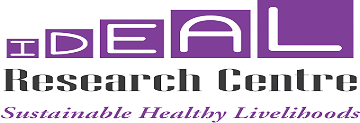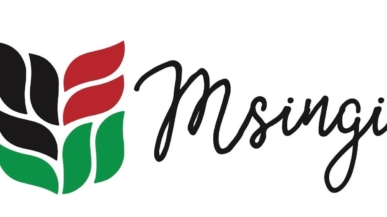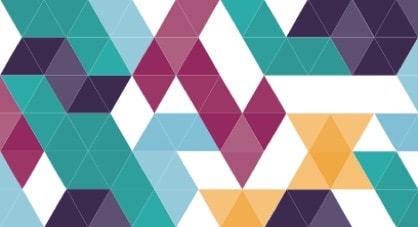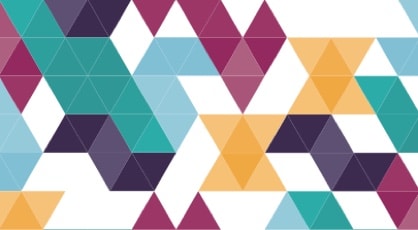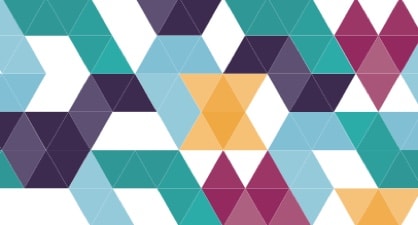Call for proposal
Faith, Freedom & Feminism
Kenya Innovate & Learn V-21179-KE-IL
-
Grant amount
1:100,000 Euro, 2-5: 25,000 EuroProject Duration
12 - 28 MonthsClosing date
25 Jun 2021 -
-
-
Grants
Innovation is key to understanding and solving things in the 21st century where there are always contestations between ideas and agendas on different fronts. Often times, proponents of faith and feminism centered lenses have led fragmented discourses, competing instead of combining efforts to challenge inequality, exclusion, and amplify voices of marginalised communities in society. It is essential therefore to examine freedom as a cross-cutting experience in how people exercise their faith and feminism. This may be achieved by amplifying the work of communities who are already doing work that combines faith and feminism as experiences of freedom in many ways including through the arts.
Art allows for there to be a different story, an individual voice or image, so marginalised and discriminated groups can be seen and heard. It has the benefit of being able to provide these groups with an alternative narrative that they can be able to relate to.
How do we make the future more safe and attractive for marginalised and discriminated groups than what now exists? Can art as a form of freedom inspire people to act as advocates for human rights causes? Can art be used in more direct ways to appeal to conservative groups and open up possibilities for new thinking?
Voice in collaboration with Hivos’ Resource Of Open Minds (ROOM) East Africa project wishes to support creatives through this call for ideas to learn from new and more dynamic methods of communicating about Faith, Freedom & Feminism.
About Voice & ROOM
Voice is a grant facility based on the principles to Leave No One Behind and Nothing About Us Without Us. Voice supports projects that challenge inequality and exclusion by strengthening the political power of those currently ignored and unheard, those who remain ignored by public opinion and power-holders, and whose needs are being discussed without them at the table. Specifically, we mean the millions of people whose identity or context leaves them economically, socially, and politically marginalised – they don’t have equal access to information, power, and influence. In order to contribute to making that dream a reality, Voice was brought to life to tackle exclusion holistically, by focusing on 3 main impact areas:
- Improving access to (productive) resources (finance, land, and water) and employment.
- Improving access to social services, health, and education in particular.
- Promoting the creation of more open and inclusive spaces for political participation and citizen engagement.
ROOM EA is a project that supports creatives’ contribution to the diversification of dialogue, debate, and dissent in their societies. It supports young creatives, like artists, designers, filmmakers, vloggers, etc., who create independent cultural and media productions which are diverse in their identities, mediums, content, channels, and audiences.
Why is this topic important?
For several decades, movements have embraced the notions of “the personal is political” and that each and every person is the expert of their own experiences. This topic is therefore important as it allows us to examine how freedom is at the core of religion and feminism and without it, how it leads to a world where religion and feminism are used as tools of exclusion in society.
While religion is considered to be connected to gender inequality and oppression, and feminism used to exclude men, we believe that it is imperative to examine the intersections between Faith, Feminism and freedom as we work towards partnering with allies, both known and unknown, to come up with innovative and creative solutions that we can learn from for future advocacy.
Bridging approaches
In our commitment to reduce inequality and celebrate inclusion, Voice and ROOM will pool our learning and resources through this call for ideas from Kenya only. The key goal of this initiative is to bridge the gaps between social movements, activists, and civil society, and the highly conservatives groups working in the field of faith and religion.
This call will follow a two-step approach as outlined below;-
- Five (5) shortlisted ideas will be invited to participate in a 6 days virtual workshop for capacity strengthening and refinement of the ideas. The representation will be 2 persons (which has to be a gender-balanced team) from the five selected organisations;
- The grand idea (The #1 idea out of the five) selected through a participatory process, will be offered the Voice grant (worth up to € 100.000) and idea number 2, 3, 4, and 5 will be offered the Voice grant (worth up € 25.000 each) to implement their project.
What are we looking for?
We are looking for applications from the faith, creative, freedom, and feminism sectors that examine how freedom is experienced through faith and feminism in a way that challenges inequality, exclusion and amplifies the voices of marginalized groups from society.
These can be initiatives that have faith and feminism themes at the centre of their messaging brought out in creative and innovative approaches. The proposed output and initiatives can for example explore how religious institutions help us to experience our freedom as human beings better or how they also suppress the voices of underrepresented groups in society.
Another example can be how in the gender and feminism discourse, there are groupings that are downtrodden by others due to their marginal positioning and how the voices of these underprivileged groupings can be amplified. A desired approach is that which brings out initiatives that transcend both faith and feminism discourses through exploring common or peculiar experiences of freedom that leads to amplification of marginalised communities.
The proposed ideas should aim at having the following approaches incorporated in the design, structure, and implementation of the project:
- Production of creative audio-visual content that can be shared on digital platforms in the form of music, film, podcasts, vlogs, AR, VR, etc. Non-digital output products like fashion, literature, crafts can also be submitted provided the output has an element that can be shared in digital platforms.
- Capacity strengthening activities for the faith and or feminism practitioners or participants based on the unique idea presented by the applicant and the larger goal of amplifying underprivileged voices in society.
- Physical and digital infrastructure development for the applicant. This is to cover for development of resources that would ensure that the project has a long term scope and benefits a wider community of practitioners such as the renovation of creative hub studios. An example of this is the infrastructure upgrade project done with Nafasi Art Studio in Dar es Salaam, Tanzania.
Priority will be given to applications led by rural-based organisations from Kenya that represent or work on, for, and/or with the following rightsholder groups:
- Lesbian, Gay, Bisexual, Trans and/or Intersex (LGBTI+) people
- Vulnerable youth and the elderly
- Women facing exploitation, abuse, and/or violence
- Indigenous peoples and/or ethnic minorities
- People with disabilities
We are specifically looking for applications that, by, or which;-
- Represent communities of creative and cultural producers engaged in audio-visual content creation such as: creative spaces, groups of artists, music studios, hubs, cafés, art spaces, art galleries, independent production houses, networks of artists and producers, online platforms, collectives, co-working spaces focusing on the creative industry;
- Content producers that are using audio-visuals as an approach for dissemination and communication;
- Rightsholders using digital means to strategically distribute their content to their audiences. (e.g. through online channels such as YouTube, Spotify, etc.)
- Producing content/work that aims to show alternative viewpoints on big issues affecting the five rightsholder groups mentioned above. This content/work should enhance public debate through enabling alternative viewpoints to mainstream societal narratives on faith, freedom, and feminism. An example of this is Rev. Timothy Njoya’s Book on Selfhood: Divinity of the Clitoris
- Innovation labs to advance innovation, bring rightsholders and other stakeholders from multiple sectors together, but allow for flexibility in how they relate to each other in the spaces you create;
- Consortiums or partnerships amongst civil society organisations looking to examine the intersection of faith, feminism to breakdown cultural and social barriers to freedom;
- Collaborations between creatives’ outfits and other civil society organisation setups working on faith and gender issues.
From the numerous applications received the following grantees have been successful as part of this Call for Proposals. If you like to join Voice please see the current list of open Calls for Proposals
-
About
Innovation is key to understanding and solving things in the 21st century where there are always contestations between ideas and agendas on different fronts. Often times, proponents of faith and feminism centered lenses have led fragmented discourses, competing instead of combining efforts to challenge inequality, exclusion, and amplify voices of marginalised communities in society. It is essential therefore to examine freedom as a cross-cutting experience in how people exercise their faith and feminism. This may be achieved by amplifying the work of communities who are already doing work that combines faith and feminism as experiences of freedom in many ways including through the arts.
Art allows for there to be a different story, an individual voice or image, so marginalised and discriminated groups can be seen and heard. It has the benefit of being able to provide these groups with an alternative narrative that they can be able to relate to.
How do we make the future more safe and attractive for marginalised and discriminated groups than what now exists? Can art as a form of freedom inspire people to act as advocates for human rights causes? Can art be used in more direct ways to appeal to conservative groups and open up possibilities for new thinking?
Voice in collaboration with Hivos’ Resource Of Open Minds (ROOM) East Africa project wishes to support creatives through this call for ideas to learn from new and more dynamic methods of communicating about Faith, Freedom & Feminism.
About Voice & ROOM
Voice is a grant facility based on the principles to Leave No One Behind and Nothing About Us Without Us. Voice supports projects that challenge inequality and exclusion by strengthening the political power of those currently ignored and unheard, those who remain ignored by public opinion and power-holders, and whose needs are being discussed without them at the table. Specifically, we mean the millions of people whose identity or context leaves them economically, socially, and politically marginalised – they don’t have equal access to information, power, and influence. In order to contribute to making that dream a reality, Voice was brought to life to tackle exclusion holistically, by focusing on 3 main impact areas:
- Improving access to (productive) resources (finance, land, and water) and employment.
- Improving access to social services, health, and education in particular.
- Promoting the creation of more open and inclusive spaces for political participation and citizen engagement.
ROOM EA is a project that supports creatives’ contribution to the diversification of dialogue, debate, and dissent in their societies. It supports young creatives, like artists, designers, filmmakers, vloggers, etc., who create independent cultural and media productions which are diverse in their identities, mediums, content, channels, and audiences.
Why is this topic important?
For several decades, movements have embraced the notions of “the personal is political” and that each and every person is the expert of their own experiences. This topic is therefore important as it allows us to examine how freedom is at the core of religion and feminism and without it, how it leads to a world where religion and feminism are used as tools of exclusion in society.
While religion is considered to be connected to gender inequality and oppression, and feminism used to exclude men, we believe that it is imperative to examine the intersections between Faith, Feminism and freedom as we work towards partnering with allies, both known and unknown, to come up with innovative and creative solutions that we can learn from for future advocacy.
Bridging approaches
In our commitment to reduce inequality and celebrate inclusion, Voice and ROOM will pool our learning and resources through this call for ideas from Kenya only. The key goal of this initiative is to bridge the gaps between social movements, activists, and civil society, and the highly conservatives groups working in the field of faith and religion.
This call will follow a two-step approach as outlined below;-
- Five (5) shortlisted ideas will be invited to participate in a 6 days virtual workshop for capacity strengthening and refinement of the ideas. The representation will be 2 persons (which has to be a gender-balanced team) from the five selected organisations;
- The grand idea (The #1 idea out of the five) selected through a participatory process, will be offered the Voice grant (worth up to € 100.000) and idea number 2, 3, 4, and 5 will be offered the Voice grant (worth up € 25.000 each) to implement their project.
What are we looking for?
We are looking for applications from the faith, creative, freedom, and feminism sectors that examine how freedom is experienced through faith and feminism in a way that challenges inequality, exclusion and amplifies the voices of marginalized groups from society.
These can be initiatives that have faith and feminism themes at the centre of their messaging brought out in creative and innovative approaches. The proposed output and initiatives can for example explore how religious institutions help us to experience our freedom as human beings better or how they also suppress the voices of underrepresented groups in society.
Another example can be how in the gender and feminism discourse, there are groupings that are downtrodden by others due to their marginal positioning and how the voices of these underprivileged groupings can be amplified. A desired approach is that which brings out initiatives that transcend both faith and feminism discourses through exploring common or peculiar experiences of freedom that leads to amplification of marginalised communities.
The proposed ideas should aim at having the following approaches incorporated in the design, structure, and implementation of the project:
- Production of creative audio-visual content that can be shared on digital platforms in the form of music, film, podcasts, vlogs, AR, VR, etc. Non-digital output products like fashion, literature, crafts can also be submitted provided the output has an element that can be shared in digital platforms.
- Capacity strengthening activities for the faith and or feminism practitioners or participants based on the unique idea presented by the applicant and the larger goal of amplifying underprivileged voices in society.
- Physical and digital infrastructure development for the applicant. This is to cover for development of resources that would ensure that the project has a long term scope and benefits a wider community of practitioners such as the renovation of creative hub studios. An example of this is the infrastructure upgrade project done with Nafasi Art Studio in Dar es Salaam, Tanzania.
Priority will be given to applications led by rural-based organisations from Kenya that represent or work on, for, and/or with the following rightsholder groups:
- Lesbian, Gay, Bisexual, Trans and/or Intersex (LGBTI+) people
- Vulnerable youth and the elderly
- Women facing exploitation, abuse, and/or violence
- Indigenous peoples and/or ethnic minorities
- People with disabilities
We are specifically looking for applications that, by, or which;-
- Represent communities of creative and cultural producers engaged in audio-visual content creation such as: creative spaces, groups of artists, music studios, hubs, cafés, art spaces, art galleries, independent production houses, networks of artists and producers, online platforms, collectives, co-working spaces focusing on the creative industry;
- Content producers that are using audio-visuals as an approach for dissemination and communication;
- Rightsholders using digital means to strategically distribute their content to their audiences. (e.g. through online channels such as YouTube, Spotify, etc.)
- Producing content/work that aims to show alternative viewpoints on big issues affecting the five rightsholder groups mentioned above. This content/work should enhance public debate through enabling alternative viewpoints to mainstream societal narratives on faith, freedom, and feminism. An example of this is Rev. Timothy Njoya’s Book on Selfhood: Divinity of the Clitoris
- Innovation labs to advance innovation, bring rightsholders and other stakeholders from multiple sectors together, but allow for flexibility in how they relate to each other in the spaces you create;
- Consortiums or partnerships amongst civil society organisations looking to examine the intersection of faith, feminism to breakdown cultural and social barriers to freedom;
- Collaborations between creatives’ outfits and other civil society organisation setups working on faith and gender issues.
-
How to apply?
This Call for Proposals is closed and no longer accepting applications. Come back here at a later stage to learn about the grantees that have been selected in this Call for Proposals.
The current open Calls for Proposals can be found here.
-
This Call for Proposals is closed and no longer accepting applications. Come back here at a later stage to learn about the grantees that have been selected in this Call for Proposals.
The current open Calls for Proposals can be found here.
-
From the numerous applications received the following grantees have been successful as part of this Call for Proposals. If you like to join Voice please see the current list of open Calls for Proposals



